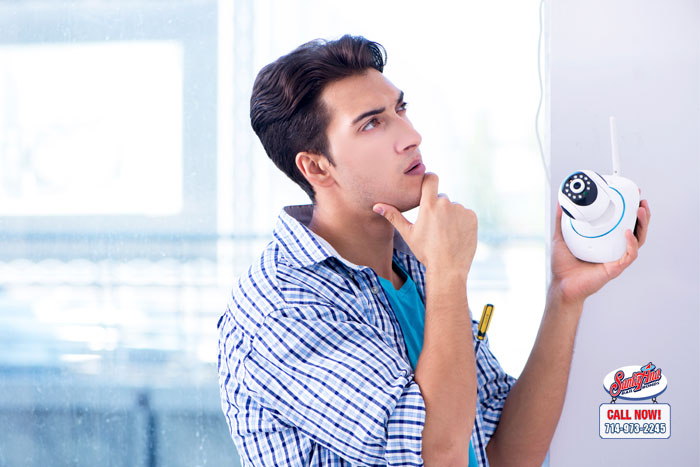The Fourth Amendment was designed to protect people while they were in the comfort of their own home. It prevents law enforcement from entering the home without a warrant. The problem with the Fourth Amendment was that it was written and signed into law long before secret video surveillance was even possible.
Many people believe that the secret home video surveillance is a direct violation of the Fourth Amendment, however courts across the country disagree. They feel that if an undercover agent is invited into a person’s home, even if they don’t have a warrant, they’re allowed to use a hidden camera to videotape what is located in the house and what activities are currently taking place within the home.
Whenever the topic of secret home video surveillance and the Fourth Amendment come up, prosecutors refer back to a 1966 U.S. Supreme Court case, Hoffa v. U.S. In that particular case, the Supreme Court justices ruled against Hoffa, stating that just because the incriminating data had been gathered by an undercover officer without Hoffa’s knowledge, it didn’t mean the evidence wasn’t admissible in court.
Another example of when the courts felt that secret home video surveillance didn’t violate the Fourth Amendment was when the U.S. Fish and Wildlife Service launched an investigation against Ricky Wahchumwah. The agency suspected that Wahchumwah was illegally poaching and selling eagles and various eagle parts. The agency assigned a special agent to the case. He approached Wahchumwah and struck up a relationship with the suspected poacher, claiming that they shared an interest in eagles. The special agent even went as far as purchasing eagle wings from Wahchumwah, something that was very illegal.
Later, when the special agent visited Wahchumwah in the suspect’s house, he had a video recording unit hidden on his body. The agent used the video recorder to keep a record of everything that was in Wahchumwah’s house, including a notebook that contained detailed information about previous sales. The Fish and Wildlife Service used the video as grounds to obtain a warrant to search Wahchumwah’s property. The video, combined with other evidence they uncovered during the search, was enough to get an arrest warrant.
Wahchumwah was found guilty of violating the Lacey Act and the Bald and Golden Eagle Protection Act. He appealed the conviction and brought it to the Supreme Court who ruled that the since Wahchumwah knowingly revealed the information that was used to obtain the search warrant, the Fourth Amendment wasn’t violated.
Today, law enforcement agencies through California use secret home video footage to obtain information about drug, gang, and even fraud related cases.
Can the Police bug your house? Do they have the right to do it?
First, a court order is required to enter a home and install a listening device. The Court will only issue such an order if a law enforcement officer, under oath, swears there is probable cause (meaning a reason to believe) that someone is committing or about to commit a serious crime inside the house, that particular communications concerning that offense will be obtained through intercepting the conversations, and that agents have unsuccessfully attempted to obtain information concerning such criminal activity through other means –or that it would be too dangerous to try. If the agents and prosecutor persuade the judge to authorize the placement of a listening device in the home, it will only be for thirty days unless the judge extends it.
Conversations that do not involve criminal activity should not be recorded or listened to once their non-criminal nature is determined. Progress reports should be filed with the Court periodically so the Judge can assess whether the goals of the investigation are being met by the interceptions. Bedrooms and bathrooms are rarely bugged due to the obvious enhanced privacy interests in such rooms. And finally, some of the above may not apply in the case of The Foreign Intelligence Surveillance Act which establishes procedures for electronic surveillance of foreign agents.
Is it ok to record conversations with a hidden audio device?
The laws on audio surveillance are a bit clearer than the laws governing hidden camera surveillance. If you’re planning to record a telephone call or an in-person conversation (using either a standalone audio recorder or a video camera that also captures sound), federal and state laws require that at least one of the parties consent to the recording. Currently, a majority of states allow “one-party consent.” States that require two-party consent include California, Connecticut, Florida, Illinois, Maryland, Massachusetts, Montana, New Hampshire, Pennsylvania and Washington. (Hawaii is something of a hybrid state. It allows one-party consent for audio recordings, but it requires two-party consent if the recording device is located in a “private place.”)
Today, law enforcement agencies through California use secret home video footage to obtain information about drug, gang, and even fraud related cases. Do you know if someone has installed a secret surveillance camera in your house? Do you notice something unusual?

